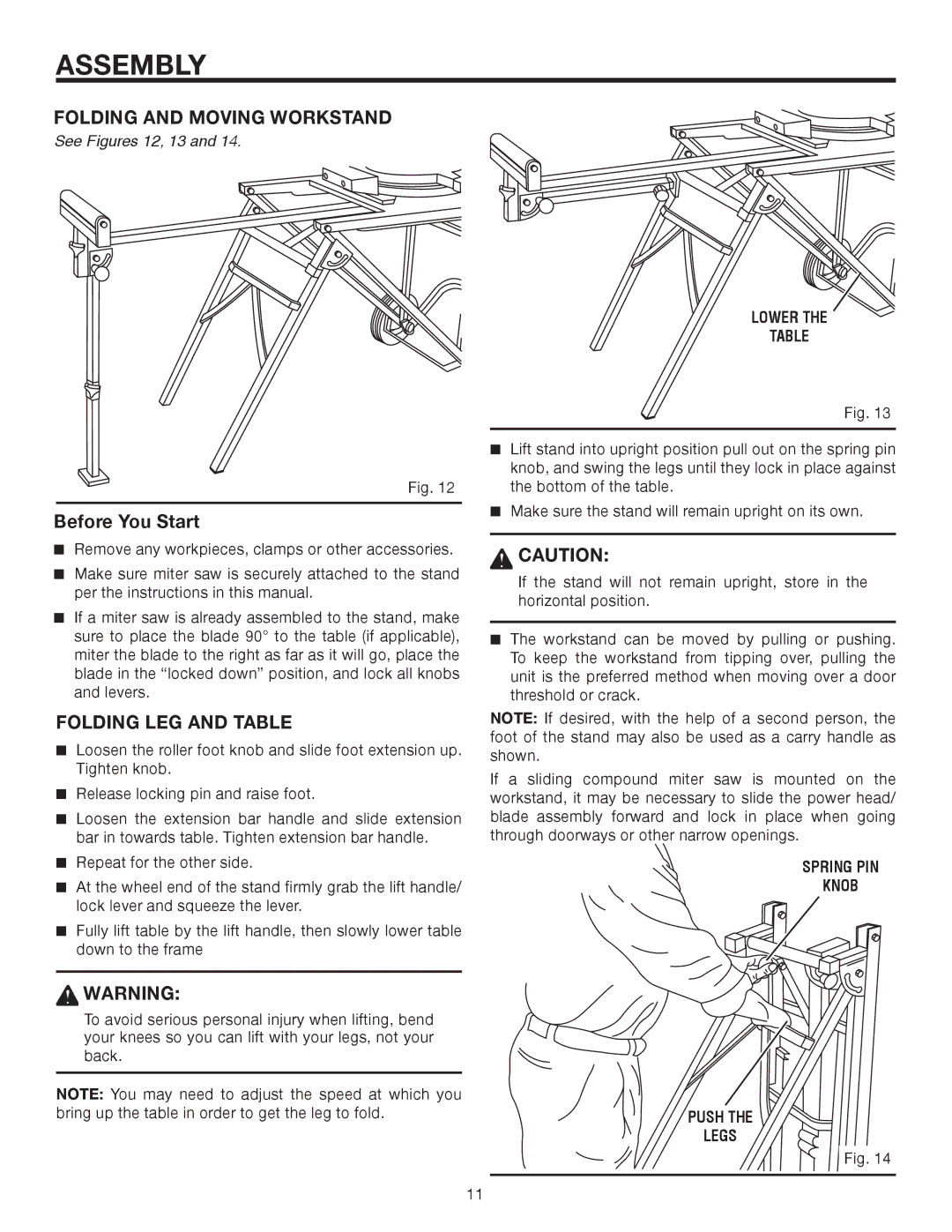
ASSEMBLY
FOLDING AND MOVING WORKSTAND
See Figures 12, 13 and 14.
Fig. 12
Before You Start
nRemove any workpieces, clamps or other accessories.
nMake sure miter saw is securely attached to the stand per the instructions in this manual.
nIf a miter saw is already assembled to the stand, make sure to place the blade 90° to the table (if applicable), miter the blade to the right as far as it will go, place the blade in the “locked down” position, and lock all knobs and levers.
FOLDING LEG AND TABLE
nLoosen the roller foot knob and slide foot extension up. Tighten knob.
nRelease locking pin and raise foot.
nLoosen the extension bar handle and slide extension bar in towards table. Tighten extension bar handle.
nRepeat for the other side.
nAt the wheel end of the stand firmly grab the lift handle/ lock lever and squeeze the lever.
nFully lift table by the lift handle, then slowly lower table down to the frame
![]() WARNING:
WARNING:
To avoid serious personal injury when lifting, bend your knees so you can lift with your legs, not your back.
NOTE: You may need to adjust the speed at which you bring up the table in order to get the leg to fold.
LOWER THE
TABLE
Fig. 13
nLift stand into upright position pull out on the spring pin knob, and swing the legs until they lock in place against the bottom of the table.
nMake sure the stand will remain upright on its own.
![]() CAUTION:
CAUTION:
If the stand will not remain upright, store in the horizontal position.
nThe workstand can be moved by pulling or pushing. To keep the workstand from tipping over, pulling the unit is the preferred method when moving over a door threshold or crack.
NOTE: If desired, with the help of a second person, the foot of the stand may also be used as a carry handle as shown.
If a sliding compound miter saw is mounted on the workstand, it may be necessary to slide the power head/ blade assembly forward and lock in place when going through doorways or other narrow openings.
SPRING PIN
KNOB
PUSH THE
LEGS
Fig. 14
11
